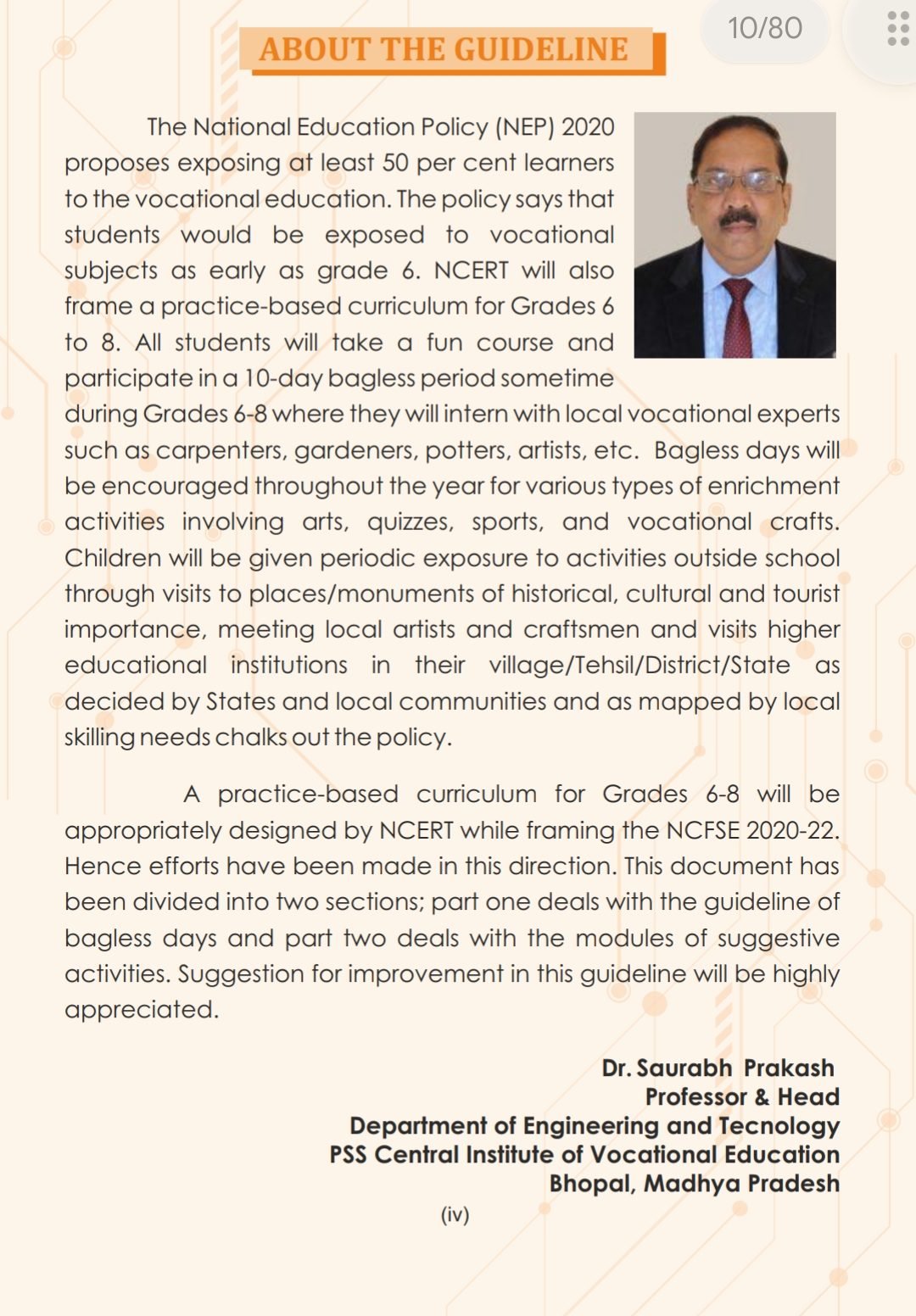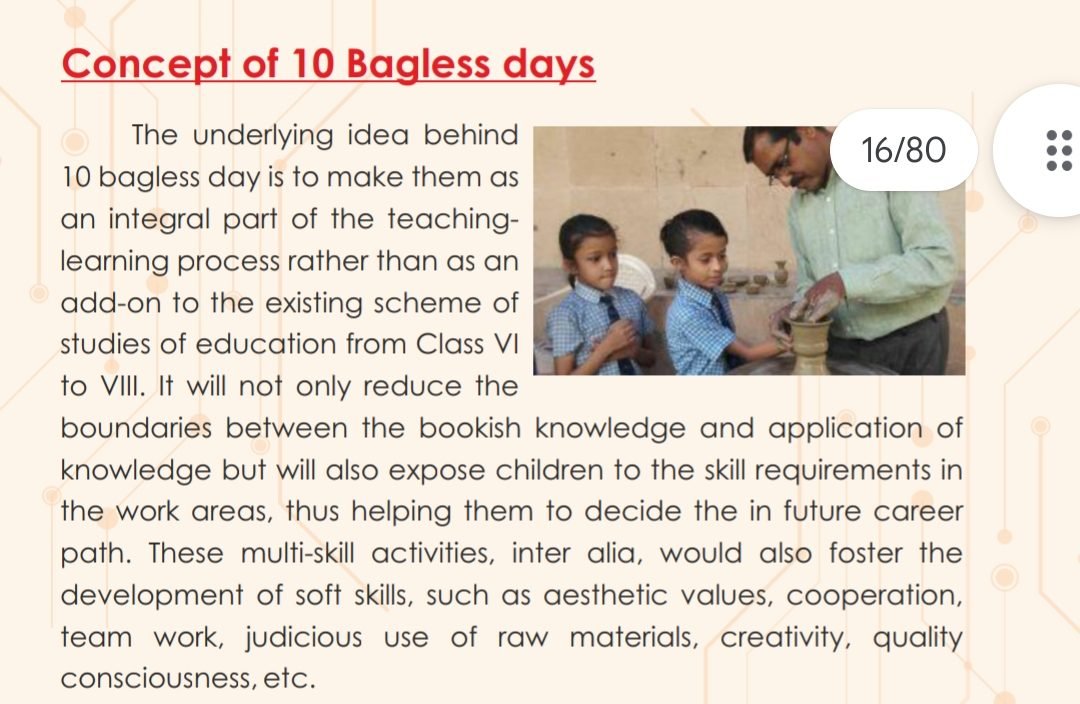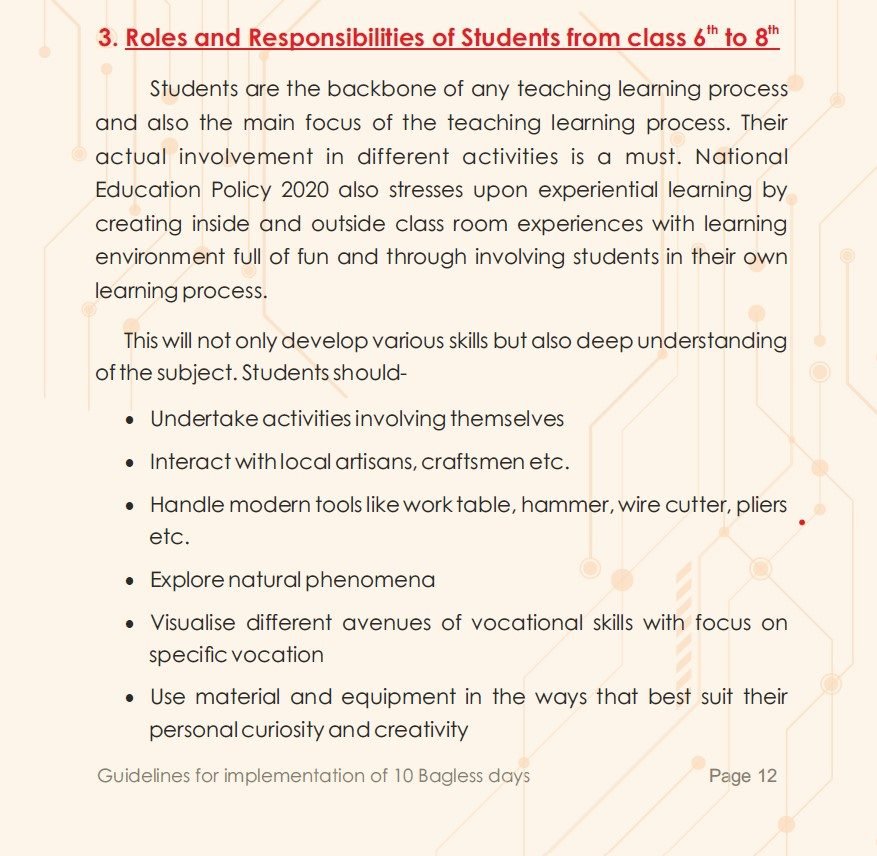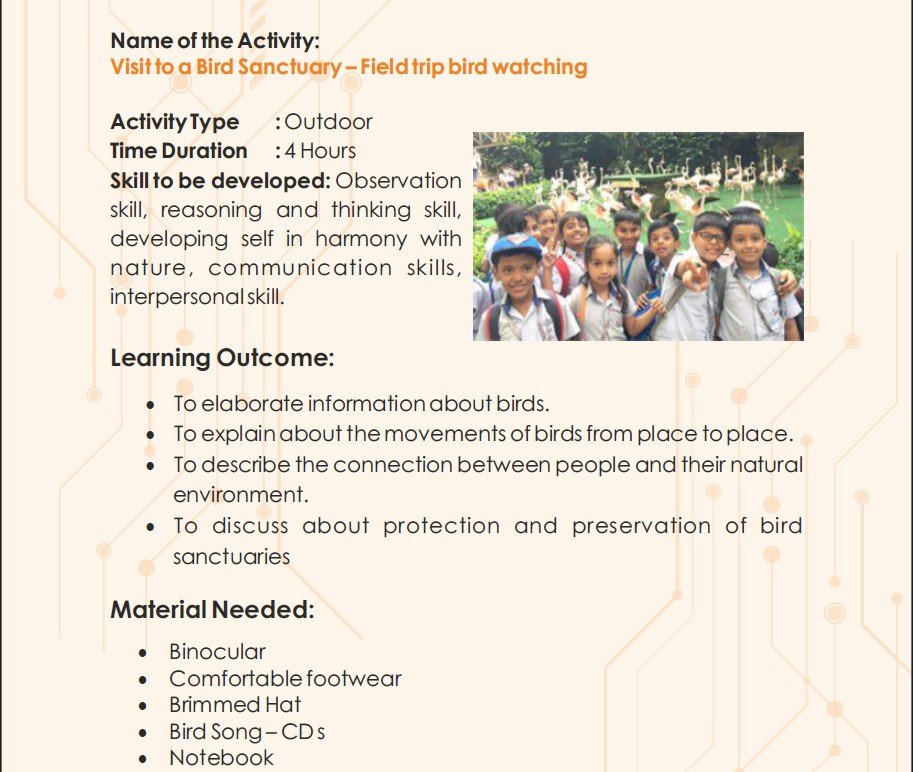
The policy mandates that at least 50% of students be exposed to vocational subjects. This will be implemented through “10 Bagless Days” for students in Classes 6 to 8.

NEW DELHI: The National Council for Educational Research and Training (NCERT) has unveiled new guidelines designed to integrate “bagless days” into the curriculum for students in Classes 6 to 8.
The new guidelines also highlight the importance of incorporating a variety of enrichment activities—such as arts, quizzes, sports, and vocational crafts—into the bagless days. This approach is intended to foster a well-rounded educational experience and contribute to the overall development of students.

Some suggested activities include field trips to bird sanctuaries, construction sites, dairy farms, vegetable markets, the excavation site of Keezhadi, multi-art centres for performing and visual arts, and art from waste activities like doll making. Other activities include a cycle rally on “Go Green,” doodling, dance, drama and mimes, kite making and flying, and expert lectures on artificial intelligence, data science, robotics, and cybersecurity.
The New Indian has accessed the education ministry’s detailed note on this.
Announced on the fourth anniversary of the National Education Policy (NEP) 2020, this initiative aims to make learning more experiential and reduce academic stress for young students.
The policy mandates that at least 50% of students be exposed to vocational subjects. This will be implemented through “10 Bagless Days” for students in Classes 6 to 8.

Developed by the Pandit Sunderlal Sharma Central Institute of Vocational Education, the guidelines are part of a broader effort to align educational practices with the NEP 2020’s vision of integrating vocational education into mainstream schooling. Under this initiative, students will spend ten days annually away from their regular school routine, engaging in various hands-on and field-based activities.
Dinesh Prasad Saklani, Director of NCERT, told The New Indian, “The beauty of bagless days lies in their ability to exemplify vocational education through meaningful physical participation. These activities are designed to channel students’ energy effectively, allowing them to fully engage and express their creativity.”
During these bagless days, students will participate in activities outside the classroom, such as visiting historical, cultural, and tourist sites, interacting with local artisans and craftsmen, and exploring higher educational institutions within their local area. These experiences aim to bridge the gap between theoretical knowledge and practical application, providing students with a broader understanding of various vocations and skill requirements.

Dr. Deepak Paliwal, Joint Director of NCERT, emphasized the importance of user feedback for the ongoing improvement of the program. “We encourage educators and schools to provide feedback on the guidelines. Their insights will be invaluable in refining the program and ensuring it meets the needs of students and communities effectively.”
The NCERT guidelines emphasize that these bagless periods are intended to be a core component of the educational process, rather than an additional activity. During the ten days, students will intern with local vocational experts, including carpenters, gardeners, potters, and artists. This exposure is expected to help students make more informed decisions about their future career paths.
Furthermore, the guidelines recommend dedicating a minimum of ten days, or approximately 60 hours, of school time to these activities within the academic year. Schools have the flexibility to schedule these bagless days throughout the year, incorporating them into the annual academic calendar as needed.

By integrating these vocational and experiential learning opportunities, NCERT aims to promote skill-building, respect for various forms of labour, and a deeper appreciation for Indian arts and craftsmanship. The initiative reflects a commitment to enhancing the quality of education and ensuring that every student gains practical skills alongside their academic knowledge.